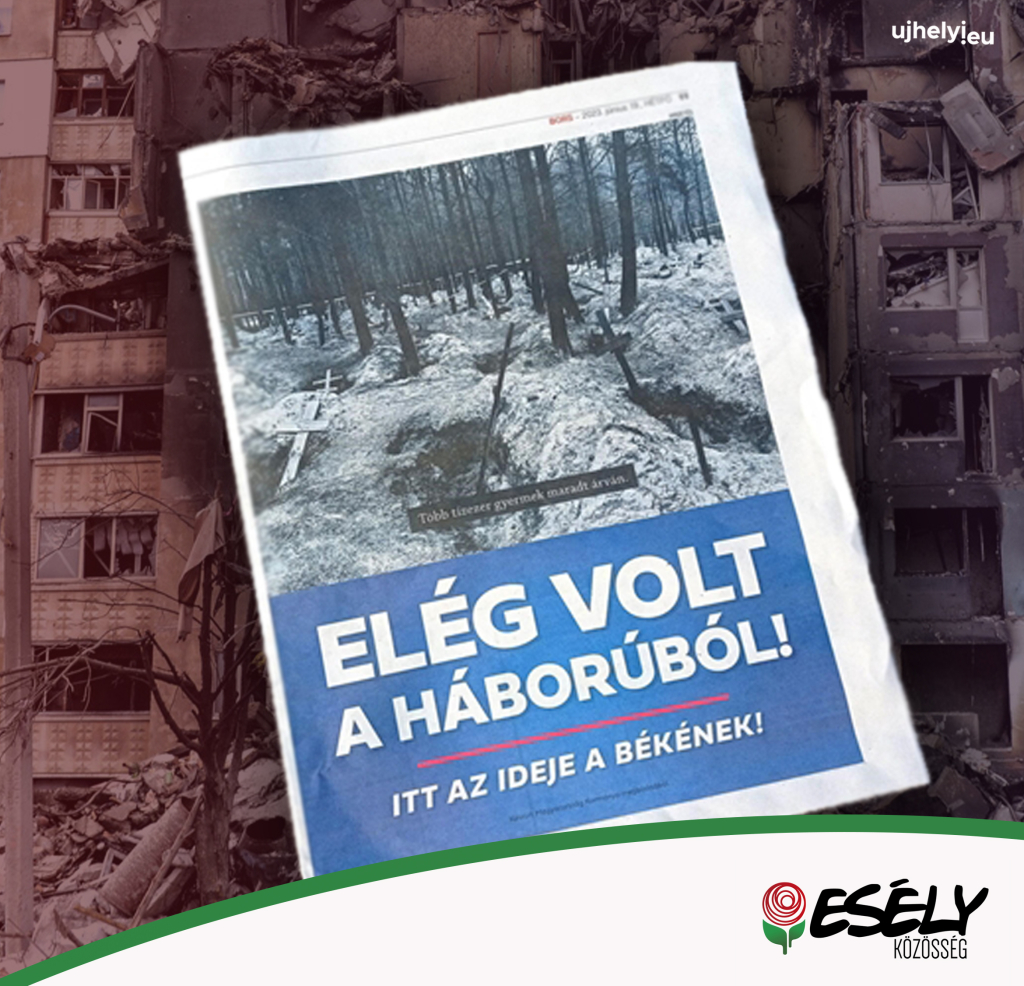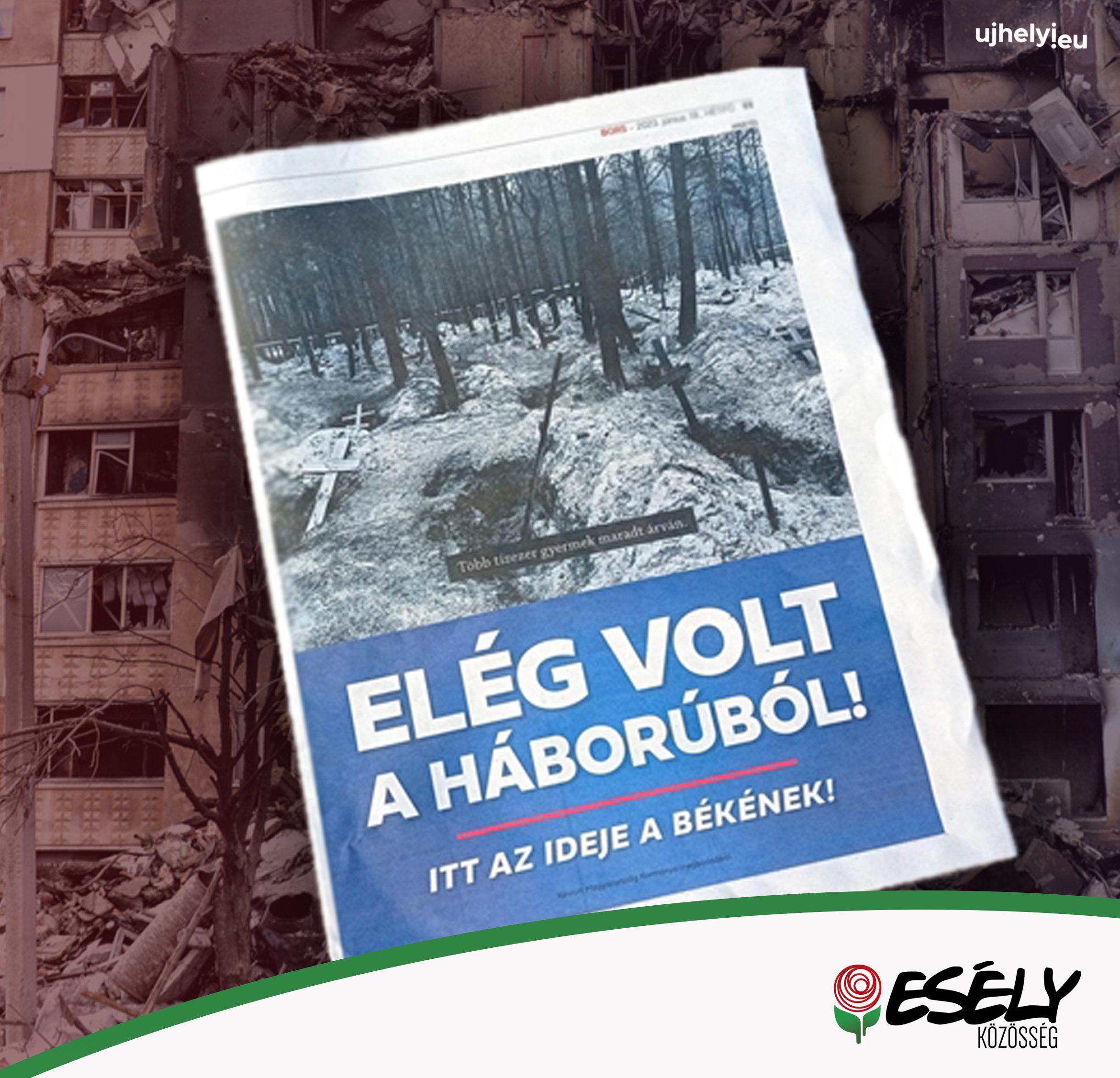Published: 2.7.2023

We are living in turbulent historical times, without knowing what the consequences, for example, of the rapid internal power play in Russia will have, also for us. What is certain is that the Hungarian government should make people aware in all circumstances that the only security for the Hungarian nation is provided by the European Union and NATO’s alliance system and that it is the responsibility of the government of the day to strengthen and safeguard this alliance. Unfortunately, Hungarian history is heavily burdened by dark examples of how the political warlords of the day – sometimes for their petty personal interests – pushed our shared country to the dark side of world politics, into the wrong team. The actions of Orbán and his circles bear particular weight for this reason.
The only people who have benefited most from the fact that the Orbán government is not only verbally but also literally proclaiming peace are those who skim the public funds intended for government communication, such as the Fidesz dailies; most recently, full-page print advertisements appeared with a photo of a mass grave in Ukraine, calling for peace as soon as possible.
However, it is difficult to justify in this way the proclamation of the noble intention, supported by all sane people, to put an end to the killing in Ukraine as soon as possible, unless, of course, it is also about keeping the pro-government camp in suspense and subconsciously antagonising the opposition. Of course, it is. Because why should the Hungarian government use Hungarian taxpayers’ money to convince Hungarian people that peace is needed as soon as possible? And mostly on platforms that serve the pro-government reality? It makes no sense.
If the government had not placed this one-page advertisement in Magyar Nemzet, but in, say, its Moscow counterpart, Rossiyskaya Gazeta, in huge Cyrillic letters, it would have made more sense. It would have been a courageous and truly pro-peace act. After all, it was the Russians who took up arms, so it is they who must lay down their arms first, which means that it is from them that immediate peace must be demanded in the first place. But, of course, we all know why Viktor Orbán’s government is not promoting peace in the Russian government newspaper and why it is not demanding immediate disarmament from Putin in any official, diplomatic form.
It is infuriating, and extremely disappointing for the long-term fate of our shared homeland, that a significant proportion of the Hungarian electorate does not even understand this, or does not want to understand it. Indeed, they accept this kind of visceral incitement without question or criticism, or at worst identify with it. Hundreds of thousands of Hungarians – the vast majority of whom are obviously pro-government and live a decent life and want to continue to do so – accept the bent reality of the Fidesz public’s view of pro-war leftists and oppositionists interested in killing as the truth, and perhaps even spit angrily at the CÖF’s publicly funded posters scattered around the country that are filled with hatred towards opposition figures.
It is extremely disappointing, because this social climate, which has been driven to extremes, and the increasingly encysting bubbles of hundreds of thousands of people who have been deliberately misled, make it impossible to have any meaningful dialogue on certain national issues – which are truly matters of fate – and, in the end, to reach a compromise that is acceptable in the long term and that everyone can support. Yet this would be much needed, since every system fails at some point, including the current Orbán regime. And it is our responsibility to lay the foundations for the old and new framework for living together in the period that follows.
I am convinced that it cannot rest on either political side accusing the other – in a deliberately dishonest way – of a paid-for intention to send the nation to the slaughter. For such incitement poisons a society until the tension finally finds a way to culminate – most often in the form of physical violence. Those who want real peace do not post advertisements. A stable and lasting peace is not a PR product, like the promise of a ‘civic Hungary’.
dr. István Ujhelyi
Member of the European Parliament / Founder of the Community of Chance
25/06/2023
